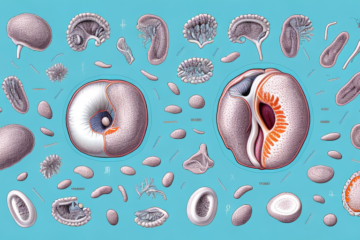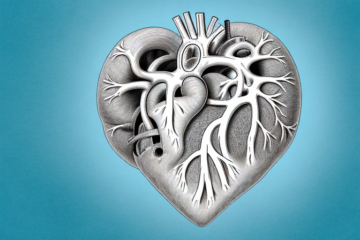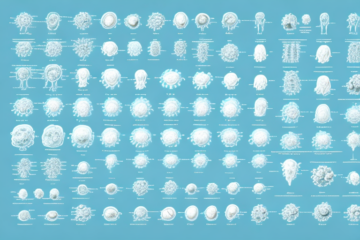Iced tea is a refreshing drink enjoyed by millions around the world. However, excessive consumption of iced tea has been linked to a rare and serious kidney disorder known as iced tea nephropathy. This article explores what iced tea nephropathy is, its symptoms, causes, diagnosis, complications, prevention, and treatment options.
What is Iced Tea Nephropathy?
Iced tea nephropathy is a rare form of kidney disease that occurs due to the buildup of oxalate crystals in the kidneys, leading to damage and scarring. Oxalates are naturally occurring substances in many foods, including iced tea, which are usually excreted by the kidneys. However, excessive consumption of iced tea or other foods high in oxalates can overwhelm the kidneys, leading to the formation of kidney stones and eventually kidney damage.
While iced tea nephropathy is rare, it is important to note that individuals with a history of kidney stones or kidney disease may be more susceptible to developing this condition. Additionally, certain medications and medical conditions can also increase the risk of developing kidney damage from oxalate buildup.
Symptoms of iced tea nephropathy may include abdominal pain, nausea, vomiting, and blood in the urine. Treatment may involve reducing oxalate intake, increasing fluid intake, and in severe cases, dialysis or kidney transplant may be necessary.
What Are the Symptoms of Iced Tea Nephropathy?
The symptoms of iced tea nephropathy can vary, but usually, patients present with a history of chronic low-level kidney problems. Symptoms may include abdominal pain, frequent urination, blood in urine, or other urinary problems. Many patients may not notice any symptoms until significant kidney damage has already occurred.
Aside from the common symptoms mentioned above, patients with iced tea nephropathy may also experience fatigue, weakness, and swelling in the legs, ankles, or feet. These symptoms are often associated with the kidneys’ inability to remove excess fluids and waste products from the body.
In severe cases, patients may develop end-stage renal disease, which requires dialysis or a kidney transplant. It is essential to seek medical attention if you experience any of the symptoms mentioned above, especially if you have a history of kidney problems or consume large amounts of iced tea regularly.
What Causes Iced Tea Nephropathy?
Iced tea nephropathy is caused by the excessive consumption of oxalate-rich foods, most notably, iced tea. However, other foods with high oxalates include spinach, rhubarb, nuts, and chocolate. Additionally, people with certain medical conditions, such as chronic kidney disease, gout, or inflammatory bowel disease, are at a higher risk of developing iced tea nephropathy. Some medications may also increase the risk of oxalate buildup in the kidneys.
It is important to note that not everyone who consumes oxalate-rich foods will develop iced tea nephropathy. The condition is more likely to occur in individuals who have a genetic predisposition to kidney stone formation or those who have a history of kidney stones. Furthermore, the severity of the condition can vary depending on the amount of oxalate consumed and the individual’s overall kidney function.
Prevention of iced tea nephropathy involves limiting the consumption of oxalate-rich foods and increasing fluid intake to help flush out the kidneys. Treatment may involve medications to reduce the amount of oxalate in the urine or procedures to remove kidney stones. It is important to consult with a healthcare provider if you have a history of kidney stones or are experiencing symptoms such as abdominal pain, nausea, or blood in the urine.
How is Iced Tea Nephropathy Diagnosed?
Iced tea nephropathy can be challenging to diagnose, as the symptoms are often vague and nonspecific. Blood tests, urine tests, and imaging studies, such as CT scans or ultrasounds, may be performed to check kidney function and for the presence of kidney stones. Additionally, a kidney biopsy may be done to examine the kidney tissue for the presence of oxalate crystals.
It is important to note that not all cases of kidney damage caused by oxalate crystals are due to iced tea consumption. Other factors, such as certain medications or medical conditions, can also lead to the formation of oxalate crystals in the kidneys. Therefore, a thorough medical history and physical examination are also important in making a diagnosis of iced tea nephropathy.
What Are the Complications of Iced Tea Nephropathy?
The complications of iced tea nephropathy can be severe and include chronic kidney disease, kidney failure, and the need for dialysis or kidney transplant. Additionally, the formation of kidney stones can cause severe pain and discomfort and may require surgery to remove.
Furthermore, iced tea nephropathy can also lead to hypertension, or high blood pressure, which can further damage the kidneys and increase the risk of heart disease. Patients with this condition may also experience anemia, a condition in which the body does not have enough red blood cells to carry oxygen to the tissues.
It is important to note that not all cases of iced tea nephropathy result in severe complications. Some patients may only experience mild symptoms, such as fatigue or mild kidney damage, which can be managed with lifestyle changes and medication. However, it is crucial to seek medical attention if you experience any symptoms of kidney damage, such as blood in the urine, swelling in the legs or feet, or decreased urine output.
Who is at Risk of Developing Iced Tea Nephropathy?
People who consume large amounts of iced tea or other oxalate-rich foods and those with certain medical conditions that predispose to kidney problems are at higher risk of developing iced tea nephropathy. Additionally, people who take certain medications, such as antibiotics or diuretics, may be at increased risk.
It is important to note that the risk of developing iced tea nephropathy is not limited to those who consume excessive amounts of iced tea. Other beverages and foods that are high in oxalate, such as spinach, rhubarb, and almonds, can also contribute to the development of this condition.
Furthermore, individuals with a history of kidney stones or chronic kidney disease are at a higher risk of developing iced tea nephropathy. These individuals should be cautious when consuming oxalate-rich foods and beverages and should consult with their healthcare provider to determine safe levels of consumption.
Can Iced Tea Consumption Lead to Kidney Stones?
Yes, consuming large amounts of iced tea or other oxalate-rich foods can increase the risk of kidney stone formation. Kidney stones are small, hard deposits that form in the kidneys and can cause significant pain and discomfort when they pass through the urinary tract.
It is important to note that not all types of tea contain high levels of oxalates. Black tea, for example, has lower levels of oxalates compared to green tea. Additionally, drinking iced tea in moderation and staying hydrated can help reduce the risk of kidney stone formation.
Other factors that can increase the risk of kidney stones include a family history of kidney stones, certain medical conditions such as gout and inflammatory bowel disease, and a diet high in salt and animal protein. If you experience symptoms such as severe pain in the back or side, nausea, vomiting, or blood in the urine, it is important to seek medical attention immediately.
How to Prevent Iced Tea Nephropathy?
To prevent iced tea nephropathy, it’s essential to maintain a balanced and healthy diet that is low in oxalates. Avoid drinking excessive amounts of iced tea or other beverages high in oxalates and limit the intake of oxalate-rich foods such as spinach, rhubarb, nuts, and chocolate. Additionally, drinking plenty of water can help flush out the kidneys and reduce the risk of kidney stone formation.
Another way to prevent iced tea nephropathy is to limit the consumption of sugary drinks and alcohol, as they can also contribute to kidney damage. It’s also important to maintain a healthy weight and exercise regularly to improve overall kidney function.
If you have a history of kidney stones or kidney disease, it’s important to speak with your healthcare provider about your iced tea consumption and any other dietary restrictions you may need to follow. They may recommend a low-oxalate diet or other lifestyle changes to help prevent further kidney damage.
Treatment Options for Iced Tea Nephropathy
Treatment for iced tea nephropathy depends on the severity of the condition and may include measures to control blood pressure, manage pain, and prevent kidney damage. Medications to reduce the formation of oxalate crystals in the kidneys and to treat any underlying medical conditions that may be contributing to kidney problems may also be prescribed. In severe cases, surgery may be necessary to remove kidney stones or repair kidney damage.
It is important for individuals with iced tea nephropathy to make dietary changes to reduce their intake of oxalate-rich foods, such as spinach, rhubarb, and chocolate. Increasing fluid intake and avoiding dehydration can also help prevent the formation of kidney stones. In addition, regular monitoring of kidney function through blood and urine tests is necessary to track the progression of the disease and adjust treatment as needed.
For those with advanced kidney damage, dialysis or kidney transplantation may be necessary. It is important to work closely with a healthcare provider to develop a personalized treatment plan and to follow all recommended lifestyle modifications to manage the condition and prevent further kidney damage.
Home Remedies for Managing Iced Tea Nephropathy Symptoms
Along with medical treatments, several home remedies can help manage the symptoms of iced tea nephropathy. Drinking plenty of water and other fluids can help flush out the kidneys and reduce the risk of kidney stones forming. Additionally, eating a diet low in oxalate-rich foods and avoiding excessive caffeine and alcohol intake can also help. Gentle exercise, such as walking or swimming, can help improve kidney function and reduce stress.
Another effective home remedy for managing iced tea nephropathy symptoms is to consume foods that are rich in antioxidants. Antioxidants help to reduce inflammation and oxidative stress in the body, which can be beneficial for kidney health. Some examples of antioxidant-rich foods include berries, leafy greens, nuts, and seeds. Additionally, incorporating herbal teas such as dandelion root tea or nettle leaf tea into your diet can also help to support kidney function and reduce inflammation.
When to See a Doctor for Iced Tea Nephropathy?
If you experience any symptoms of kidney problems, such as abdominal pain, frequent urination, blood in urine, or other urinary problems, you should see a doctor immediately. Early diagnosis and treatment of iced tea nephropathy can help prevent severe kidney damage and other complications.
It is important to note that iced tea nephropathy is a rare condition and may not be the cause of your kidney problems. Your doctor may need to perform additional tests to determine the underlying cause of your symptoms.
In addition to seeking medical attention, it is also important to make lifestyle changes to prevent further kidney damage. This may include reducing your intake of iced tea or other beverages that contain high levels of oxalate, staying hydrated, and maintaining a healthy diet and exercise routine.
The Link Between Oxalates and Kidney Stones in Iced Tea Nephropathy
Oxalates are naturally occurring substances found in many foods, including iced tea. When consumed excessively, oxalates can build up in the kidneys, leading to kidney stone formation, and eventually, kidney damage. It’s essential to maintain a balanced and healthy diet that is low in oxalate-rich foods to prevent iced tea nephropathy.
Aside from iced tea, other foods that are high in oxalates include spinach, rhubarb, and almonds. It’s important to note that not all individuals who consume oxalate-rich foods will develop kidney stones. However, those who have a history of kidney stones or have been diagnosed with kidney disease should limit their intake of these foods.
In addition to dietary changes, staying hydrated is also crucial in preventing kidney stones. Drinking plenty of water can help flush out excess oxalates and other substances that can contribute to stone formation. It’s recommended to drink at least eight glasses of water per day, and even more if you live in a hot climate or engage in physical activity.
Research Findings on the Occurrence of Iced Tea Nephropathy in the US and Worldwide.
Iced tea nephropathy is a rare condition that has only been reported in a few cases worldwide, primarily in the United States. Most cases occur in individuals who consume large amounts of iced tea over an extended period. Studies have found that the incidence of kidney stones has been increasing in recent years, possibly due to changes in dietary habits.
Recent research has suggested that the high levels of oxalate found in some types of tea, including black tea, may contribute to the development of kidney stones. However, not all types of tea have been found to have this effect, and more research is needed to fully understand the relationship between tea consumption and kidney health.
In addition to dietary factors, other risk factors for kidney stones include dehydration, obesity, and certain medical conditions such as hyperparathyroidism. It is important for individuals who are at risk for kidney stones to stay hydrated and maintain a healthy diet, and to speak with their healthcare provider about any concerns they may have regarding their kidney health.
Conclusion: Understanding and Managing Iced Tea Nephropathy
Iced tea nephropathy is a rare but severe kidney disorder that can lead to chronic kidney disease and kidney failure. The excessive consumption of iced tea or other foods high in oxalate can cause oxalate crystal buildup in the kidneys, leading to kidney damage. It’s essential to maintain a balanced and healthy diet that is low in oxalates to prevent iced tea nephropathy. Early diagnosis and treatment of this condition can help prevent severe kidney damage and other complications.
Some common foods that are high in oxalates include spinach, rhubarb, beets, nuts, chocolate, and tea. It’s important to limit the consumption of these foods to prevent the development of iced tea nephropathy. Additionally, staying hydrated and maintaining a healthy weight can also help prevent kidney damage. If you experience symptoms such as abdominal pain, nausea, or blood in your urine after consuming iced tea or other high oxalate foods, it’s important to seek medical attention immediately to prevent further kidney damage.










